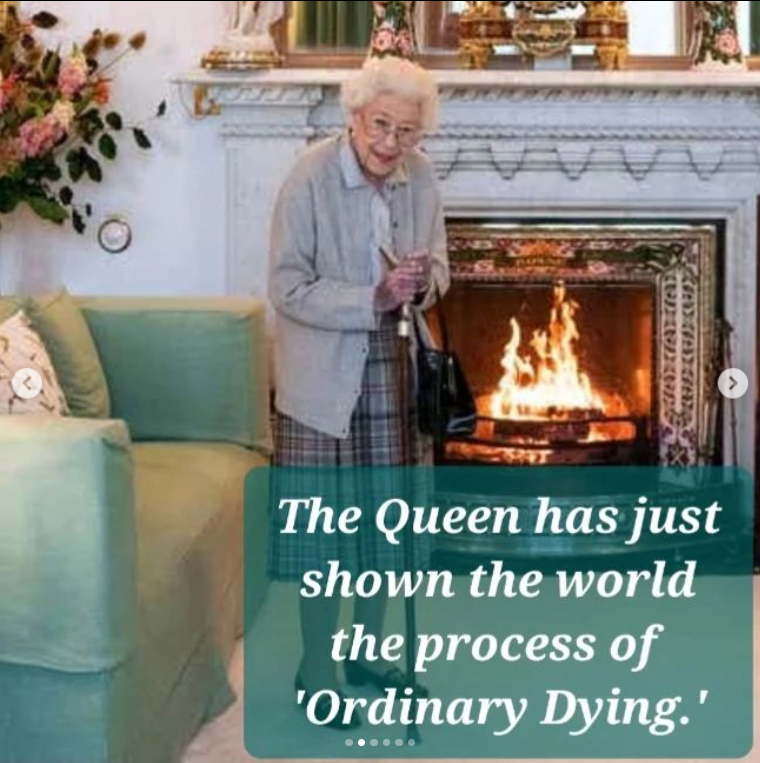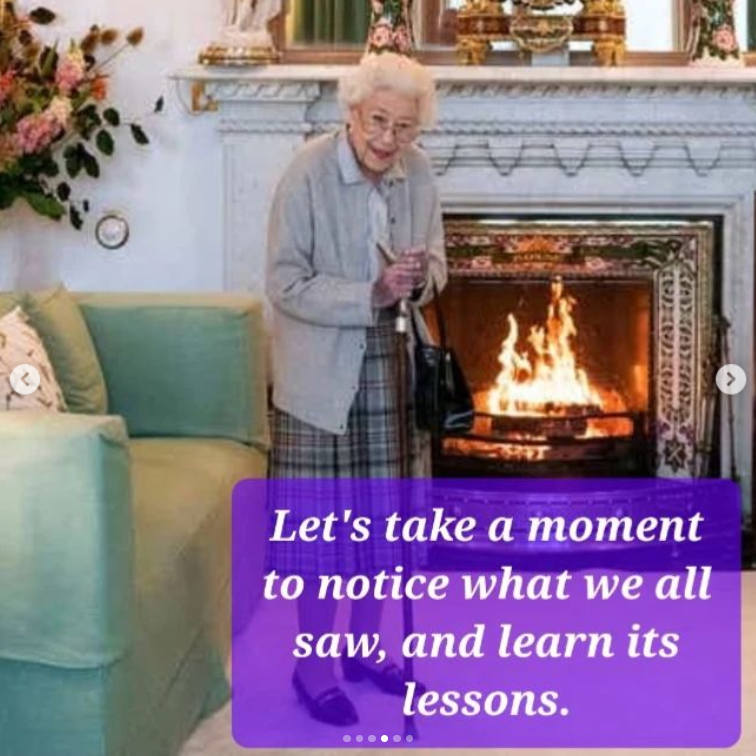
#EoL care staff need to talk about restlessness prior to death, including it in preparation. Although it's not common, it's highly distressing if companions don't understand it.
Here's an edit of my recent public info post on Facebook, where I don't use medical language.
1/
Here's an edit of my recent public info post on Facebook, where I don't use medical language.
1/

'Terminal agitation' isn't a diagnosis, but it describes muddled thinking with unusual behaviours that occasionally happens in a person close to death.
Understanding what might be happening helps us to respond calmly. *
2/



Understanding what might be happening helps us to respond calmly. *
2/




1. Towards death, the brain is losing consciousness. Most people are deeply unconscious & peaceful, but a few spend time more alert (again, usually peaceful). Some of these intermittently experience a kind of neither-awake-nor-asleep state.
3/
3/
In this in-between state, they respond as though they are awake to things that are not obvious to the other people in the room. This can include talking to/listening to people the rest of us can't see, seeing objects or animals, being convinced they need to 'do something.'
4/
4/
This state of muddled thinking & the behaviours associated with it are often because the dying person believes they need to respond to something. It's not uncommon for their focus to be on travel, for example looking for travel supplies like tickets, passport, suitcase etc.
5/
5/
2. If the person is engaged in an emotional discussion in that not-fully-awake part of their mind, they may shout, smile, weep, become excited or afraid because of the events they are experiencing.
6/
6/
3. Their experiences are hard for us to understand. Sometimes the person can't focus on the real people in the room because they are so preoccupied by this other part of their consciousness. This altered reality can come and go over hours or even days.
7/
7/
The best way we can communicate is without words: smiles, calm voices, gentle touch, singing of familiar songs - all messages to the person's subconscious that they are safe & loved.
Being in a familiar place with beloved company helps with maintaining their inner peace.
8/
Being in a familiar place with beloved company helps with maintaining their inner peace.
8/
4. Some medications can make this muddled reality more likely. Any drugs that have a sedative effect on the brain can make it a bit more difficult for the brain to make sense of things - for some people just a tiny sedative effect can tip the balance.
9/
9/
There are many drugs that have very mildly sedating side-effects, including some painkillers, some treatments for nausea, for breathlessness, for itch, to aid sleep (deliberately sedating, of course), & for some medical conditions.
10/
10/
5. Towards the end of life, being awake enough to swallow meditation can be a problem. Finding other ways to continue symptom-management drugs is important, to prevent return of symptoms. Here in the UK we switch to non-oral medication at that point.
11/
11/
We usually use subcutaneous (under the skin) injections or infusions, using a small, battery-driven syringe pump that's easy to manage at home.
12/
12/
Missing out on medication doses because the dying person is too sleepy to swallow can allow symptoms to come back. This varies depending on the person's illness(es) - dying itself doesn't cause pain, nausea, breathlessness etc, but the underlying illness can.
13/
13/
6. Some drugs have a withdrawal syndrome, where the person feels restless or agitated if the drug levels in their body drop abruptly.
Anti-depressants and opioid painkillers can both have this withdrawal effect in some people, unless doses are reduced gradually and slowly.
14/
Anti-depressants and opioid painkillers can both have this withdrawal effect in some people, unless doses are reduced gradually and slowly.
14/
7. Some drugs that have been controlling a condition like severe arthritis, migraines, seizures, are important in maintaining control of that condition to the end of life: discomfort might come back if the drug is stopped (or can't be swallowed any more).
15/
15/
Treatments for long-term benefits (eg blood pressure, blood-clot prevention) can be stopped without causing short-term difficulties.
It's a good idea to assess a dying person's medications: decide what should be continued & how to give it safely and comfortably.
16/
It's a good idea to assess a dying person's medications: decide what should be continued & how to give it safely and comfortably.
16/
8. Some people who aren't fully conscious become agitated in response to physical sensations (eg full bladder or bowels, dry mouth, feeling hot, uncomfortable bedding). Morphine isn't the solution: they need nursing care to check for & address the source of their discomfort.
17/
17/
So there can be many causes, but often the same solutions: calm, quiet, smiling care from familiar people give a sense of safety.
Check for missed medications.
Check for discomfort.
Only use sedatives if the person is distressed - many muddled people aren't distressed.
18/
Check for missed medications.
Check for discomfort.
Only use sedatives if the person is distressed - many muddled people aren't distressed.
18/
It's hard to see these changes in our loved ones. They may not be distressed, but perhaps we are.
If this has happened to somebody you loved, I hope this post helps you to reflect on that strange and upsetting experience and perhaps to make some peace with it.
19/
If this has happened to somebody you loved, I hope this post helps you to reflect on that strange and upsetting experience and perhaps to make some peace with it.
19/
Thanks to Jennifer Juelich Fraley for letting me use our discussion about possible reasons that her usually calm Dad was yelling aloud shortly before he died.
20/
20/
*images are fractured shots of Picasso's 'Don Quixote.' I'm posting from Valladolid, where Cervantes wrote the novel. This picture refers to Don Quixote jousting with giants: but the giants were actually windmills, misconstrued in his altered reality. 







• • •
Missing some Tweet in this thread? You can try to
force a refresh










